Want to become a recovery coach?
Then this is the article for you. Starting a recovery coaching business can be a rewarding and profitable path if you have the drive, education, and skills required.
And in this guide, you’ll learn:
- How to become a recovery coach
- What qualifications you need
- How to get your first paying clients
Ready to get started? Let’s jump in.
You’ll learn…
- What is recovery coaching?
- How do you become a recovery coach?
- What are the best recovery coaching certification programs?
- How do you get paying recovery coaching clients?
What is a recovery coach?
Here’s the simple definition: A recovery coach helps clients overcome their addictions in a non-clinical way to sustain long-term recovery.
Typically, we associate recovery coaches with drug, alcohol and substance addictions. But that’s not the whole picture. Addiction professionals can also work with other addictions too, such as:
- Food addiction
- Sex/love addiction
- Shopping addiction
- Gambling addiction
- Exercise addiction
- Gaming addiction
Yes, that’s a lot of possible niches. Want help deciding which one you should focus on? Check out the YouTube video below:
Recovery coaches use support, accountability and life coaching techniques to help their clients stay on the right path. The recovery coach sets up a recovery process, removes barriers and obstacles, helps their students sustain results, offer crisis intervention, and acts as a mentor and personal guide.
But you might be wondering: Wait, isn’t that what therapists do?
That’s a great question. Let’s talk about it.
What’s the difference between a recovery coach and a therapist?
Could a recovery coach be confused with a therapist? They could be, but there are some key differences between the two. So, if you’re interested in becoming a recovery coach, these are important to know.
The first difference is the education path. To be licensed as a therapist, you have to study psychology and/or have a counseling degree. Then you can specialize in addiction therapy.
Get the Ultimate Guide
for building a
6-Figure Coaching Business so you can achieve more freedom!
On the other hand, recovery coaches don’t need to be certified because coaching isn’t a regulated industry. With that said, many successful recovery coaches are former addicts who have taken coaching courses, so they’re equipped to give peer support and offer a proven recovery process.
Here’s an important caveat, though: Some health and mental health niches do require certifications or specialist recovery coach training to qualify. So, always research the niche you’re interested in to see what qualifications you might need.
Another big difference between recovery coaches and therapists? How they work.
Therapists use therapeutic (clinical) techniques to work through an addict’s trauma and help them rewrite their stories.
As a recovery coach, you focus on action. So, you create a step-by-step plan to help your client reach their goal and hold them accountable to get them there.
The type of coaching I recommend is a blend of consulting and coaching.
What does that mean?
It means you become an advisor and an action planner, guiding your client to reach each milestone in your coaching program.
Of course, therapy has goals too, but it’s more fluid and less goal-orientated than coaching.
Ultimately, therapy is clinical recovery support. Coaching is peer recovery support.
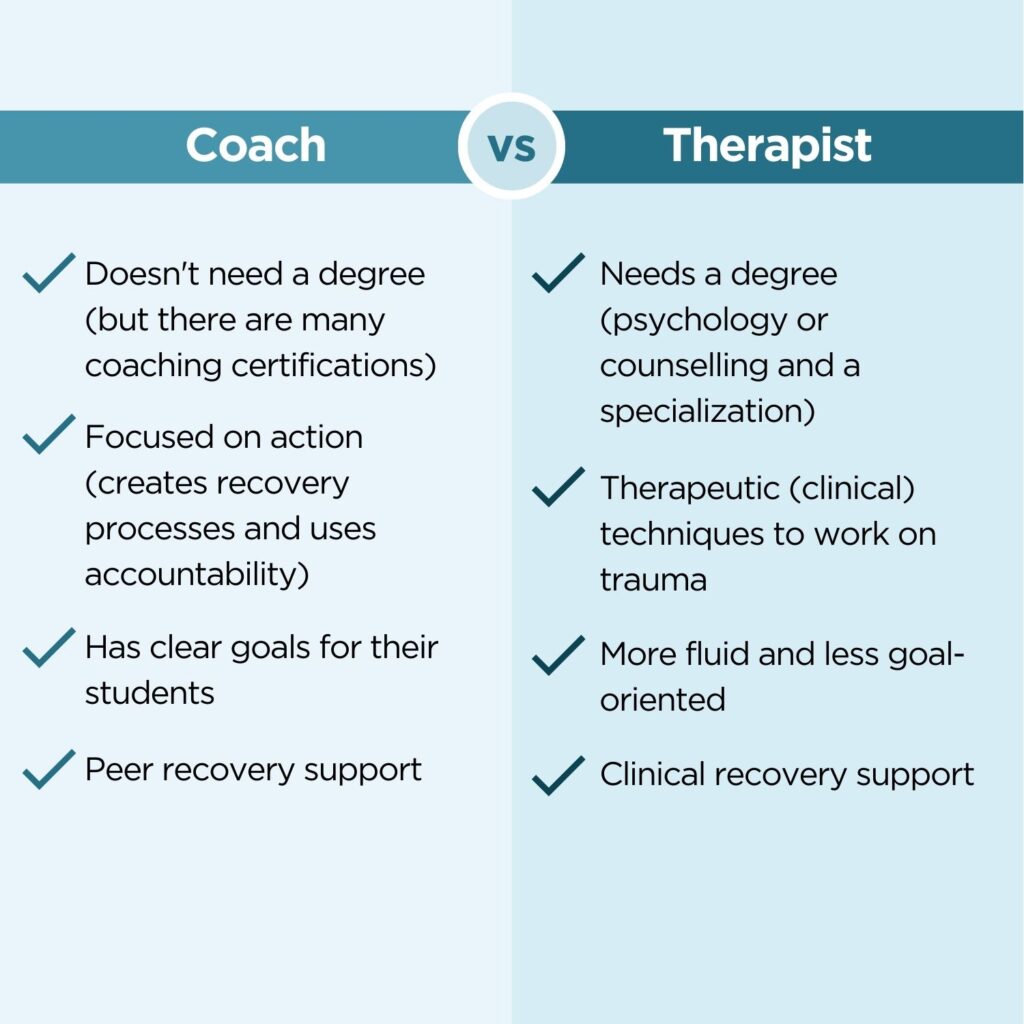
But is coaching still useful for people struggling with addiction?
Yes!
Coaching is very effective at keeping people in recovery on track. In fact, studies show that accountability is a key part of how recovering adults accomplish their goal of staying away from their addictions.
So, if you chose the recovery coach route and not the therapist route, how much could you make? Well, A LOT. Let’s talk about it.
Do recovery coaches make money?
First, let’s set the scene with some averages.
The average coach across all niches earns $62,500.
Is that your cap as a recovery coach?
Not even close. Your income depends on your ideal clients and how you grow your business.
There are many self-employed coaches out there who earn six figures or multi-six figures every year while transforming their clients’ lives.
Obviously, it takes work to reach that six-figure coaching salary, but now you know the potential.
So, how can you start a recovery coaching business that makes great money? You’re about to find out.
How to become a recovery coach
Now that you know what a recovery coach does and how much they can earn, let’s talk about the “how.”
How long does it take to become a recovery coach?
Ultimately, it depends on you.
There are many paths to becoming a recovery coach, and the length of each path varies.
But one thing is for sure: If you have an educational background in addiction recovery, therapy, nursing, or other medical studies, you can become a recovery coach way faster.
Why?
Because you already have the experience and knowledge to start your journey.
If you’re starting from scratch, though, you need to learn your subject in detail first.
How do you do that? One great way is to get a certification in recovery coaching, which typically takes about a year or so to complete. Let’s talk more about certifications and if you really need one.
Do you need certification to become a recovery coach?
Generally, no, you don’t need a coaching certification to become a coach. As I said earlier, that’s because coaching isn’t a regulated industry.
BUT recovery coaching is a little different.
Because you’re working with vulnerable people, you have an ethical duty of care. Your clients will also expect to see some credentials in the medical or therapeutic field.
Addiction care is specific. There’s a well-researched science to it.
Maybe you’re someone who overcame your own addictions and can help others on their journey to recovery.
That’s great! Your experience is valuable, but you should also back it up with a course, certification, or degree in addiction studies to give your clients extra peace of mind.
How much does it cost to become a recovery coach?
If you already have an education in addiction studies, you can start your recovery coaching business right away.
Starting a coaching business doesn’t cost much. In fact, don’t bother creating a website or hiring a graphic designer for a fancy logo.
You can get your first clients in organic ways. All you need is a way to do video calls with a tool like Zoom, and you’re ready.
If you choose to become a certified addiction recovery coach first, though, it could cost anywhere between $2,000-$10,000.
But what are the best certification programs? Let’s take a look.
Best recovery coach certification programs
If you want to become a certified addiction recovery coach, here are three recovery coach training programs you should check out.
Note: I haven’t taken these programs myself, so I can’t give a personal recommendation. I’m recommending them based on their reputation and testimonials.
North Shore Community College Recovery Coach Certification Training
North Shore Community College has a specific recovery coaching program that covers the exact skills you’ll need in your new business. You’ll learn how addiction works and how you can help your clients change their lives with proven coaching techniques. This recovery coach academy puts an emphasis on ethics, which is a huge plus to the program.
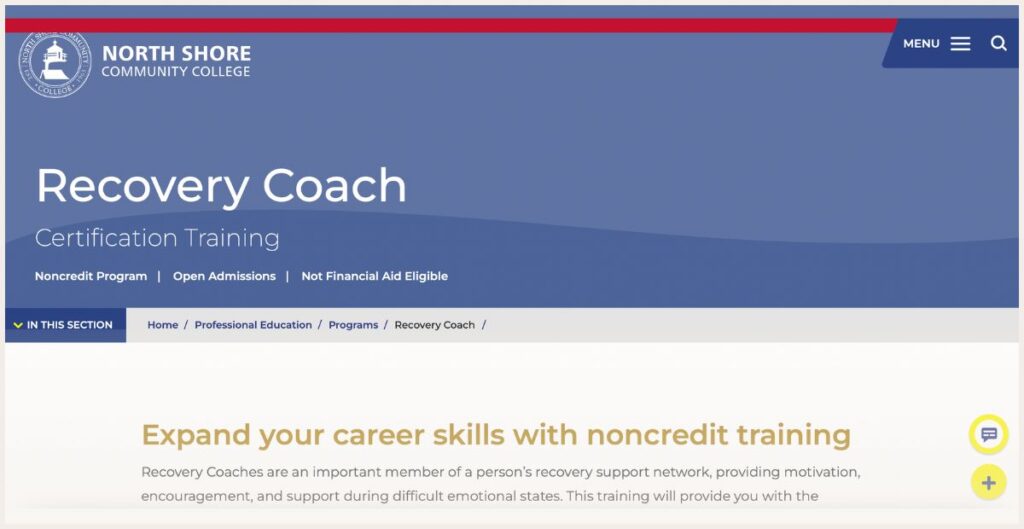
CCAPP Academy Alcohol and Drug Treatment Studies
CCAPP stands for the California Consortium of Addiction Programs and Professionals. They are the accreditation body that hosts courses across the State of California. The CCAPP program is 56 weeks long and covers addiction in depth. You’ll learn about the psychology of addiction, the principles of personal growth, and how people relapse. You’ll also get actionable practice in counseling.
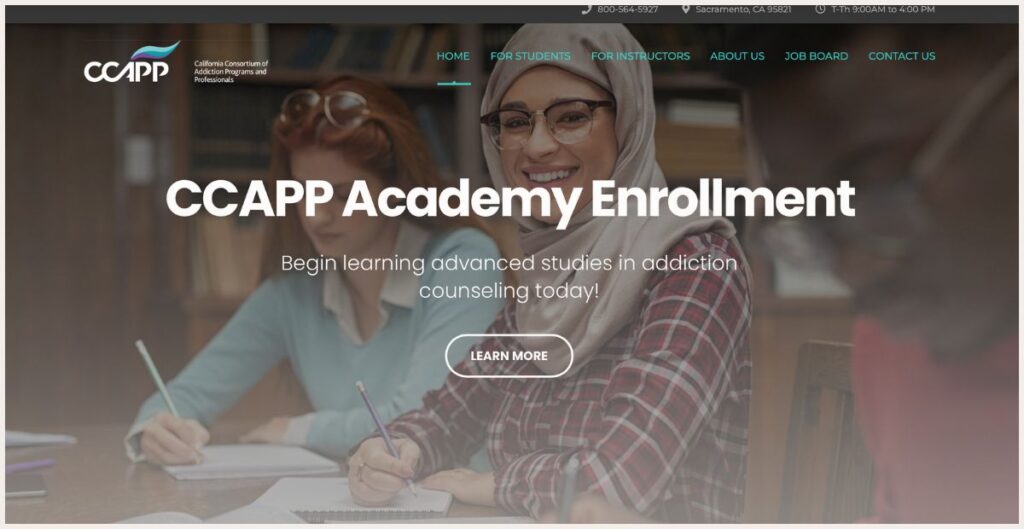
Minnesota Recovery Coach Academy
The Minnesota Recovery Coach Academy has a 46-hour program that gives you the tools to be a great coach to your future clients. The course is designed to teach you core coaching skills and addiction knowledge so you can become a trusted guide in the field. By the end, you’ll feel confident giving non-clinical support to people who need what you offer.
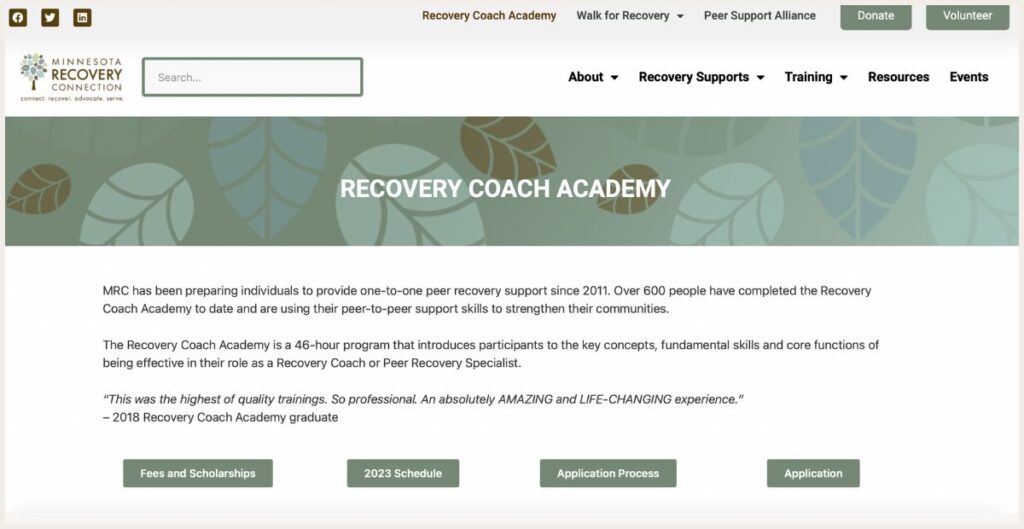
How do recovery coaches get clients?
Here are some example strategies to get your first coaching clients as a recovery coach.
Treatment centers
Want to know a great source of networking, community, and potential clients? Treatment centers.
So, volunteer or work at your local addiction treatment centers to get involved with the community.
There, you can work with clients and hone your skills. As you build relationships, the centers may let you advertise your services directly to patients.
Get the Ultimate Guide
for building a
6-Figure Coaching Business so you can achieve more freedom!
Top tip: Make sure you approach treatment centers that your clients are likely to go to. Think about where the treatment center is and what kind of addiction they help people with.
For example, the center you’d approach as a food addiction recovery coach will be very different from the one you’d approach as a drug addiction recovery coach. For best results, zero in on your specific niche.
Get interviewed on podcasts
Podcasts are a great way to get brand awareness and raise your profile as an expert in your field.
I like podcasts because there are so many niche ones that cater to a wide range of people.
Target podcasts that speak to your audience. Maybe it’s a podcast for people with a shopping addiction or a podcast on how to stay sober.
Whatever it is, create a shortlist of podcast hosts to approach and pitch yourself as a guest expert.
You can use this opportunity to get your name out there and start building your client base.
Want to learn more about how to find coaching clients? Check out this video:
Over to you!
Now you know how to become a successful recovery coach this year.
Recovery coaching can be an incredibly impactful business. And one that lets you build a life of freedom and flexibility.
But how do you build a sustainable and profitable business?
That’s what I share in my PDF on building a six-figure coaching business:

Want to Build a 6-Figure Coaching Business So You Can Achieve More Freedom?
Get Instant Access To My FREE Ultimate Guide Below!
When you sign up, you’ll also receive regular updates on building a successful online business.
Sources:
Partners in Recovery: Social Support and Accountability in a Consumer-Run Mental Health Center https://www.ncbi.nlm.nih.gov/pmc/articles/PMC4547771/
Drugs, Brains, and Behavior: The Science of Addiction Treatment and Recovery https://nida.nih.gov/publications/drugs-brains-behavior-science-addiction/treatment-recovery
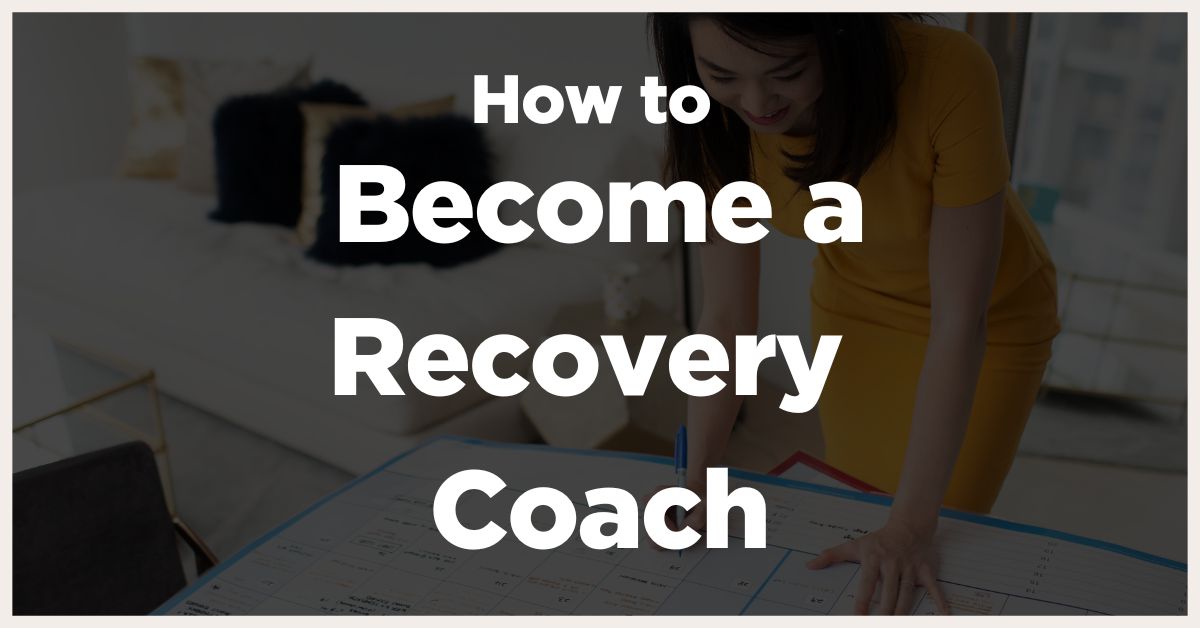








2 Responses
I have worked for the past 5 years as an alcohol and drug counselor, full-time. I hVe worked with men and women who are identified with SUD. With the knowledge I have gained and relationships I have built. I feel that I am equipped to become a Sober Companion. Thank you for an encouraging article.
You’re welcome!